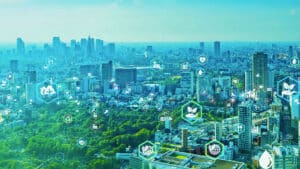Security personnel play a key role in upholding safety and order during the demanding night shifts that come with distinct risks and duties. Nighttime tasks require guards to stay alert and adaptable in settings where visibility is low, which can complicate even simple responsibilities.
The significance of security staff goes beyond protecting property; they offer a feeling of safety that aids businesses and communities in operating smoothly after sunset.
Working against their natural body clocks, guards on night shifts encounter mental obstacles. Disrupted sleep patterns can have an impact on their health and well-being underscoring the importance for security firms to implement strategies to address these challenges.
The challenges faced during these hours emphasize the necessity for health and safety approaches tailored to the unique circumstances of late-night security duties. By safeguarding the health and safety of security personnel, you directly enhance their capacity to fulfill their roles efficiently while also contributing to facility security.
Understanding the Challenges of Night Shifts
Physiological and Psychological Impacts
The challenges of working night shifts extend far beyond the mere inconvenience of altered schedules. They strike at the core of human physiology and psychology:
- Sleep Disruption: The inversion of normal sleep cycles leads to significant sleep disturbances. As highlighted by Steve Secular in his exploration of night shift challenges, disrupted sleep not only diminishes the quality of rest but also affects overall health and alertness.
- Increased Fatigue: This lack of quality sleep results in increased fatigue, which can impair cognitive functions essential for the effective performance of security duties.
- Mental Health Concerns: The irregular hours can also exacerbate mental health issues, increasing feelings of isolation and anxiety among night shift workers.
Environmental and Operational Challenges
Working under the cloak of darkness introduces unique operational challenges that necessitate specific strategies to ensure safety and effectiveness:
- Low Visibility: Night shifts often suffer from low visibility, which can severely impact a guard’s ability to monitor and respond to threats effectively. Enhanced lighting and surveillance technologies become crucial in these hours.
- Isolation: With fewer people around, night shift guards can feel particularly isolated, which underscores the importance of robust support and communication systems to ensure they can quickly summon assistance if needed.
- Heightened Risk Situations: The risks of theft, vandalism, and other criminal activities escalate under the cover of night, requiring guards to be exceptionally vigilant and proactive in their security measures.
These aspects of night shift work necessitate comprehensive planning and support to mitigate the inherent risks and ensure the safety and well-being of security personnel.
Health Risks Associated with Night Shifts
Sleep Disorders
Night shifts can significantly disrupt the natural sleep-wake cycle, leading to several sleep-related disorders:
- Insomnia: Difficulty falling asleep when off duty.
- Sleep Apnea: Higher risk due to disrupted sleep patterns.
- Narcolepsy: Daytime sleepiness affecting overall alertness and performance.
These disorders can degrade a security guard’s ability to function optimally, as outlined in the comprehensive review on the health effects of working night shifts.
Physical Health Concerns
Working night shifts is associated with several physical health issues:
- Cardiovascular Disease: Increased risk due to stress and irregular sleep.
- Obesity: Higher likelihood due to disrupted eating patterns and metabolism.
- Digestive Problems: Increased incidence of gastrointestinal issues like ulcers.
These health risks require attention through lifestyle adjustments and workplace wellness programs to maintain the health of night shift workers.
Mental Health Impact
The impact on mental health due to night shifts can be profound:
- Depression: Greater susceptibility due to isolation and lack of natural light.
- Anxiety: Increased anxiety levels due to irregular work hours.
- Social Isolation: Feeling of isolation from working unsociable hours, impacting emotional well-being.
Proactive mental health support and strategies are crucial to help mitigate these effects, ensuring that security personnel remain healthy and effective in their roles.
Safety Concerns Specific to Night Shift Security Guards
Visibility and Environmental Hazards
Night shifts inherently come with reduced visibility, which can significantly increase the risk of accidents and security breaches:
- Poor Lighting: Dim lighting or shadowed areas can obscure potential threats, making it difficult for guards to detect and respond to incidents.
- Trip and Fall Hazards: Unseen obstacles become more dangerous, necessitating the use of adequate lighting and clear pathways.
Addressing these concerns involves strategic placement of lighting and regular safety audits of the environment to ensure that potential hazards are minimized.
Increased Risk of Confrontations
The solitude of night shifts can also lead to heightened risks during confrontations:
- Isolated Incidents: Guards are more likely to be alone during confrontations at night, which can delay backup and increase risk.
- Aggressive Behavior: Individuals who trespass or attempt theft at night might be more prone to exhibit aggressive behavior, believing there’s less chance of being caught or confronted.
Training in de-escalation techniques and ensuring rapid communication channels are vital for guards to manage these risks effectively.
Emergency Response Delays
Night shifts may also experience delays in emergency response due to fewer available personnel or slower nighttime operations:
- Delayed Backup: Assistance from police or additional security might not be as readily available during late hours.
- Medical Emergencies: Response to medical emergencies may be slower, which can be critical in life-threatening situations.
Implementing comprehensive emergency protocols and ensuring all guards are trained in basic emergency response, including first aid and CPR, is crucial to mitigate these risks. Ensuring that guards have access to communication devices to quickly call for help is also paramount.
Strategies for Managing Health Risks
Sleep Management and Schedule Design
Proper sleep management is crucial for night shift security guards to mitigate health risks associated with disrupted circadian rhythms. Implementing a schedule that allows for consecutive nights followed by several days off can help maintain a more natural sleep pattern.
Companies should also encourage practices that promote better sleep hygiene, such as creating dark, quiet sleeping environments during the day and considering the use of sleep aids under professional guidance.
Nutritional and Physical Wellness Programs
Maintaining good physical health is essential for mitigating the adverse effects of night shift work. Security companies can support their guards by providing access to nutritional advice tailored to night shift challenges, such as managing energy levels with balanced meals that prevent spikes and crashes.
Regular physical activity, scheduled during times that align with the guards’ shifted “daytime,” helps in maintaining overall health and combating the lethargy associated with irregular sleep patterns. These wellness programs are supported by research indicating their effectiveness in reducing the health risks of shift work.
Mental Health Support and Resources
Night shift work can take a significant toll on mental health, making access to mental health resources and support systems a vital strategy for managing these risks.
Employers should provide training on recognizing signs of mental health struggles and offer programs that promote mental well-being, such as access to counseling and stress management workshops.
Creating a culture that encourages open discussion about mental health can help reduce stigma and ensure that guards feel supported in addressing any issues that arise.
Safety Protocols and Training
Comprehensive Safety Training
Safety training for night shift security guards must be comprehensive and tailored to the specific challenges they face. This training should include tactical communication to de-escalate potentially volatile situations, the proper use of surveillance and security equipment that may be more crucial at night, and emergency response techniques.
Regular refresher courses ensure that all security personnel remain sharp and prepared for any situation they might encounter during the less predictable night hours.
Use of Technology and Equipment
Implementing the right technology can significantly enhance the safety of night shift guards. Advanced surveillance systems with night vision capabilities, motion sensors, and enhanced communication tools like two-way radios equipped with GPS tracking can help mitigate the risks associated with reduced visibility and isolation.
Training guards on the effective use of such technology will maximize their ability to monitor their surroundings and respond quickly to incidents.
Emergency Response and Backup Procedures
Developing clear and efficient emergency response strategies is crucial for night shift security guards. These strategies should outline specific steps for various scenarios, including medical emergencies, fire, or active threats.
Additionally, protocols for quickly obtaining backup and support should be established and practiced regularly. Training sessions should simulate night-time scenarios as much as possible, so guards feel prepared and confident in their ability to handle real-life situations.
Legal and Organizational Support Structures
Legal Compliance and Worker Protections
It’s crucial for security companies to ensure compliance with labor laws that govern night shift work. Important areas include:
- Working Hours Regulations: Adhering to legal limits on the number of hours worked per shift and required breaks.
- Overtime Compensation: Ensuring that night shift workers receive appropriate compensation for any overtime worked, as mandated by law.
- Health and Safety Legislation: Following all relevant health and safety regulations to protect workers from the unique risks associated with night work.
Organizational Support Systems
Effective support for night shift workers includes the development of:
- Health Screenings: Regular health checks to monitor and address the physical and mental health impacts of night shift duties.
- Shift Rotation Policies: Implementing rotation policies that limit long-term night shift assignments to help mitigate associated health risks.
- Access to Wellness Programs: Providing programs that support overall well-being, including mental health services, fitness memberships, and nutritional counseling.
Building a Supportive Work Culture
Cultivating a supportive workplace culture for night shift workers is essential. Region Security Guarding Ltd shares how this can be achieved by:
- Open Communication Channels: Fostering an environment where night shift workers feel comfortable sharing their concerns and suggestions.
- Professional Development Opportunities: Ensuring that training and advancement opportunities are equally accessible to all employees, regardless of shift.
- Recognition and Rewards: Recognizing the unique contributions and challenges of night shift workers to enhance morale and engagement.
Incorporating these strategies not only helps in maintaining a healthy and compliant workplace but also supports the overall job satisfaction and retention of night shift personnel.
Conclusion
Night shifts are a critical component of security operations, but they come with inherent challenges that require targeted strategies to manage effectively.
By understanding these challenges and implementing robust health and safety protocols, security firms can protect their employees and ensure the effectiveness of their operations.
Emphasizing the health and safety of night shift workers not only aids in compliance with regulations but also builds a more resilient and committed workforce.
Make sure you’re fully covered with the right Security Guard Insurance Policy. Call El Dorado Insurance today for premium protection at an affordable price – 1-800-221-3386






